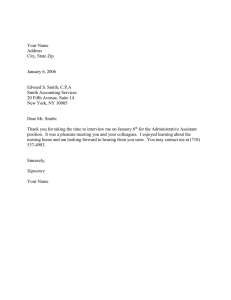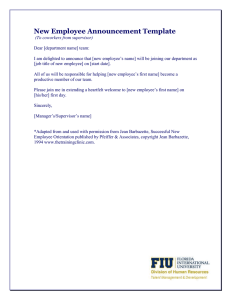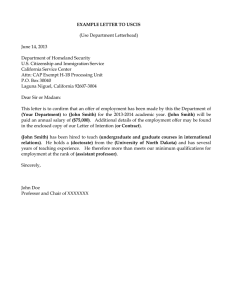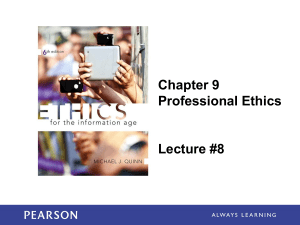Computing Ethics Assessment: Case Studies & ACM Code Analysis
advertisement
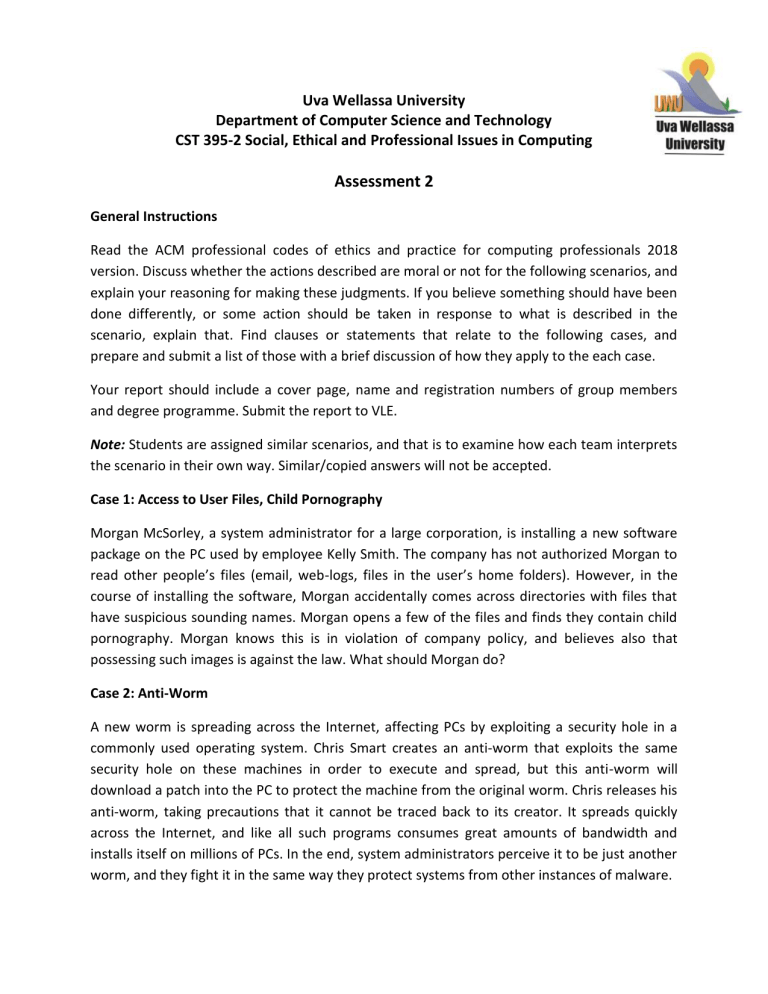
Uva Wellassa University Department of Computer Science and Technology CST 395-2 Social, Ethical and Professional Issues in Computing Assessment 2 General Instructions Read the ACM professional codes of ethics and practice for computing professionals 2018 version. Discuss whether the actions described are moral or not for the following scenarios, and explain your reasoning for making these judgments. If you believe something should have been done differently, or some action should be taken in response to what is described in the scenario, explain that. Find clauses or statements that relate to the following cases, and prepare and submit a list of those with a brief discussion of how they apply to the each case. Your report should include a cover page, name and registration numbers of group members and degree programme. Submit the report to VLE. Note: Students are assigned similar scenarios, and that is to examine how each team interprets the scenario in their own way. Similar/copied answers will not be accepted. Case 1: Access to User Files, Child Pornography Morgan McSorley, a system administrator for a large corporation, is installing a new software package on the PC used by employee Kelly Smith. The company has not authorized Morgan to read other people’s files (email, web-logs, files in the user’s home folders). However, in the course of installing the software, Morgan accidentally comes across directories with files that have suspicious sounding names. Morgan opens a few of the files and finds they contain child pornography. Morgan knows this is in violation of company policy, and believes also that possessing such images is against the law. What should Morgan do? Case 2: Anti-Worm A new worm is spreading across the Internet, affecting PCs by exploiting a security hole in a commonly used operating system. Chris Smart creates an anti-worm that exploits the same security hole on these machines in order to execute and spread, but this anti-worm will download a patch into the PC to protect the machine from the original worm. Chris releases his anti-worm, taking precautions that it cannot be traced back to its creator. It spreads quickly across the Internet, and like all such programs consumes great amounts of bandwidth and installs itself on millions of PCs. In the end, system administrators perceive it to be just another worm, and they fight it in the same way they protect systems from other instances of malware. Case 3: Software Recommendation Alex Jones calls the Department of Computer Science at Enormous State University seeking advice on how to improve the security of Jone’s business’ local area network. Alex ends up speaking to Prof. Lee Smith, an expert in the field. Prof. Smith answers several of Alex’s questions about network security, and then Alex asks for a recommendation for a software package to fight security problems. Prof. Smith tells Alex about a program called NetCheks and that it received the top-rating from a respected magazine that reviewed such packages. Prof. Smith does not mention that the magazine gave another product a “best buy” rating that had fewer features but a much lower price. Prof. Smith also fails to mention that NetCheks is the product of a spin-off company started by Smith’s former grad student at E.S.U., and that Smith owns a 3% stake in the company. Case 4: Consulting Opportunity Acme Corporation licenses a sophisticated software package to many state, county, and city governments. Government agencies have the choice of three levels of service: the bronze level provides online support only; the silver level adds phone support; and the gold level includes training classes taught on the customer’s site. The gold level of support costs $20,000 a year more than the silver level. Jean is one of the Acme employees who works in the support organization. Mostly, Jean provides phone support, but from time to time he teaches an on-site class. In fact, Jean created many of the instructional materials used in these classes. Because of the recession, quite a few government agencies have dropped from the gold level of support to the silver level, and some members of Jean’s training group have lost their jobs. Jean has a family to support, and he is wondering if his position will soon be eliminated as well. The state government of East Dakota is one of the many customers that no longer pays Acme Corporation for on-site training. One day Jean gets a call from Maria, who works for the East Dakota state agency using the software package. Maria offers to pay Jean $5,000 plus expenses to run a five-day training class that covers the same material as the official course taught by Acme. Jean accepts the offer, but he does not inform anyone at Acme Corporation of his decision. Working at home on evenings and weekends, he develops his own set of instructional materials. He takes a week of paid vacation from work, travels to East Daktoa, and teaches the class.


